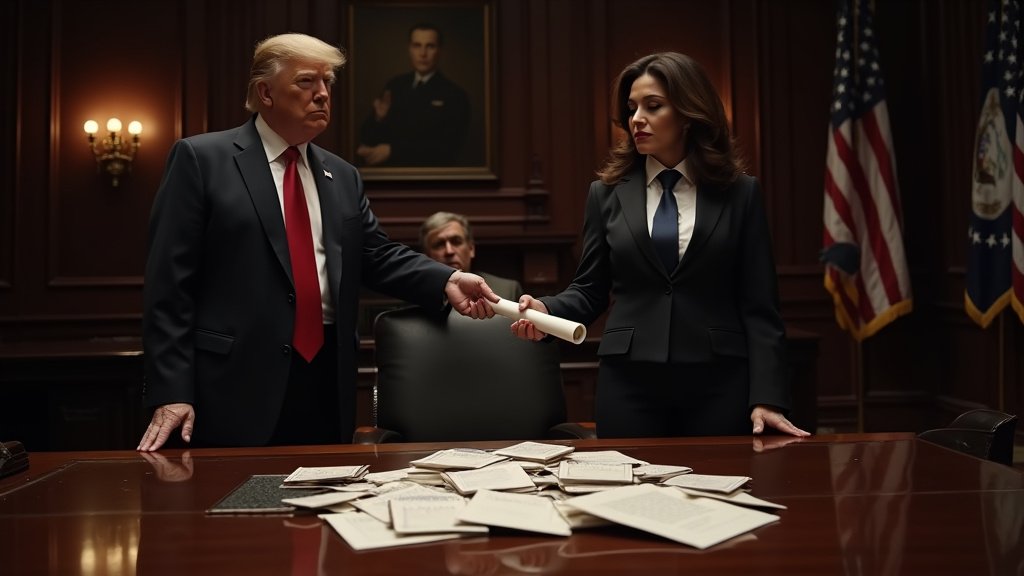The U.S. Justice Department has launched a criminal investigation into whether Washington, D.C., police officials have falsified crime data, escalating an already tense political standoff between the Trump administration and the city government over control of local law enforcement. This national news development comes as President Donald Trump publicly amplified accusations of manipulated statistics, deepening a contentious debate about public safety in the nation’s capital.
The probe, reportedly led by U.S. Attorney Jeanine Pirro’s office for the District of Columbia, aims to determine if city police manipulated figures to portray a misleading decline in crime rates. While the specific federal laws potentially violated remain unclear, legal experts suggest possible charges could include fraud, obstruction, or making false statements.
The Heart of the Controversy: Conflicting Crime Narratives
At the core of this investigation is a stark disagreement over Washington, D.C.’s crime landscape. For months, the Trump administration has asserted that the city is grappling with an out-of-control crime wave, using this narrative to justify an unprecedented federal takeover of the Metropolitan Police Department (MPD). This federalization effort involved deploying National Guard troops and additional federal law enforcement agents to the city streets.
Conversely, D.C. Mayor Muriel Bowser and local officials have consistently cited MPD’s public statistics, which indicate significant drops in violent crime. The mayor’s office has highlighted figures showing violent crime decreased by 26-27% year-over-year and reached its lowest point in three decades, arguing that a federal takeover is unnecessary and an overreach.
However, skepticism has emerged from various quarters. The D.C. Police Union, led by Chairman Gregg Pemberton, has publicly questioned the accuracy of the city’s reported drops, with Pemberton calling the figures “preposterous” based on the daily realities officers face on the street. Some independent crime analysts, like Jeff Asher of AH Datalytics, have also pointed to discrepancies between the crime data the MPD publishes locally and the data it provides to the FBI, suggesting the actual decline might be smaller than reported by the city.
Prior Allegations and a Local Investigation
The federal probe follows a separate, pre-existing internal investigation by the MPD itself. In May, Commander Michael Pulliam was placed on administrative leave amid allegations that he made “questionable” changes to crime data in his district. While Pulliam has denied any wrongdoing, and Mayor Bowser indicated the city’s police chief had concerns largely isolated to Pulliam’s district after a department-wide review, the new federal inquiry signals a broader examination.
The timing of the federal investigation closely aligns with President Trump’s intensified efforts to assert control over D.C. policing. On social media, the President directly implicated D.C. officials, stating, “D.C. gave Fake Crime numbers in order to create a false illusion of safety. This is a very bad and dangerous thing to do, and they are under serious investigation for so doing!”
Broader Implications and The Battle for Control
This investigation adds a significant new dimension to the ongoing constitutional and political battle between the federal government and D.C.’s limited self-governance. The city’s Attorney General, Brian Schwalb, had already filed a federal lawsuit challenging the White House’s authority to unilaterally take control of the MPD, arguing it violates D.C.’s Home Rule charter.
If the Justice Department’s investigation uncovers evidence of widespread data manipulation, it could provide the Trump administration with substantial leverage and justification for its assertions of federal authority over the capital’s law enforcement. Conversely, local officials and critics of the federal takeover view the investigation as politically motivated, designed to undermine the city’s autonomy and validate the administration’s claims about crime, despite national trends indicating a decrease in violent crime across many major USA cities.
The outcome of this high-stakes probe will not only determine the credibility of D.C.’s crime statistics and potentially lead to criminal charges for individuals, but it could also set a significant precedent regarding the federal government’s power over local jurisdictions, particularly in the unique case of the nation’s capital. The situation underscores the complex interplay between local governance, national security concerns, and political agendas in the United States.












